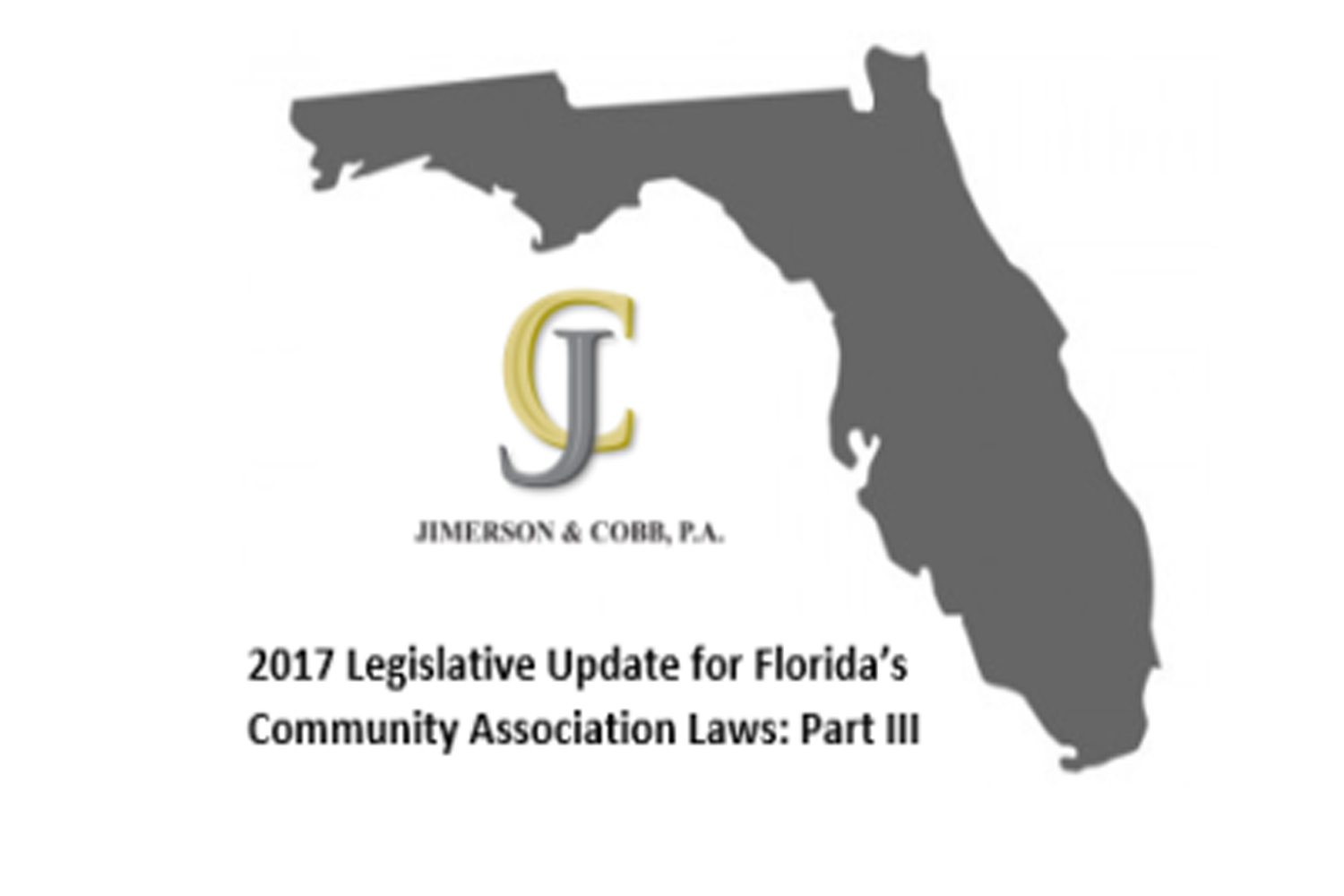Dear Governor Scott, Jimerson & Cobb, P.A., is to be commended for its commitment to protecting the health, safety and welfare of the citizens in your state. Recently, the National Association of State Contractors Licensing Agencies (NASCLA) held our 55th Annual Conference in Denver, Colorado. This annual educational conference for […]
Blogs & Resources
Jimerson Birr, P.A. offers clients a customer-focused and cost-effective alternative to larger business law firms.







